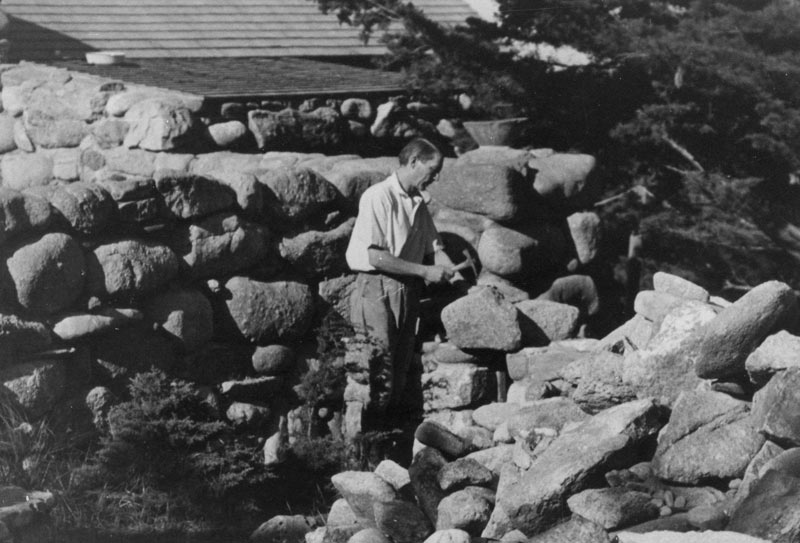BY ROBINSON JEFFERS
The quality of these trees, green height; of the sky, shining, of
water, a clear flow; of the rock, hardness
And reticence: each is noble in its quality. The love of freedom
has been the quality of Western man.
There is a stubborn torch that flames from Marathon to Concord,
its dangerous beauty binding three ages
Into one time; the waves of barbarism and civilization have
eclipsed but have never quenched it.
For the Greeks the love of beauty, for Rome of ruling; for the
present age the passionate love of discovery;
But in one noble passion we are one; and Washington, Luther,
Tacitus, Aeschylus, one kind of man.
And you, America, that passion made you. You were not born
to prosperity, you were born to love freedom.
You did not say ‘en masse,’ you said ‘independence.’ But we
cannot have all the luxuries and freedom also.
Freedom is poor and laborious; that torch is not safe but hungry,
and often requires blood for its fuel.
You will tame it against it burn too clearly, you will hood it
like a kept hawk, you will perch it on the wrist of Caesar.
But keep the tradition, conserve the forms, the observances, keep
the spot sore. Be great, carve deep your heel-marks.
The states of the next age will no doubt remember you, and edge
their love of freedom with contempt of luxury.
________________________
In his brilliant book, The Atom To Be Split: New and Selected Essays on Robinson Jeffers, referring to “Shine Republic” Robert Zaller writes:
“The core value of the West was, in Jeffers’ view, freedom, the reason and condition of its existence. Freedom had been the West’s “passion,” its “steep singleness,” but in the mass societies of abundance freedom could have no place. “The beauty of modern / Man,” Jeffers wrote in “Rearmament,” “is not in the persons but in the / Disastrous rhythm, the heavy and mobile masses, the dance of the / Dream-led masses down the dark mountain.” In “The Purse-Seine,” he likened the populations of cities to fish trapped in a net, “incapable of free survival, insulated / From the strong earth, each person in himself helpless, on all dependent.” The very memory of freedom would wither in the wars of order:
Men will fight through to the autumn flowering and ordered
prosperity. They will lift their heads in the great cities
Of the empire and say: “Freedom? Freedom was a fire. We are
well quit of freedom, we have found prosperity.” (Hellenistics)
For the chorus of maskers in “The Bowl of Blood,” freedom is already a legend that belongs to a distant past and, perhaps, an imperceptible future:
I have heard a story about freedom, a vain vain tale
Told by some Greeks, by some slave-holding Greeks
And a few Roman authors …
Freedom must wait.
This is the hour of masses and masters.











